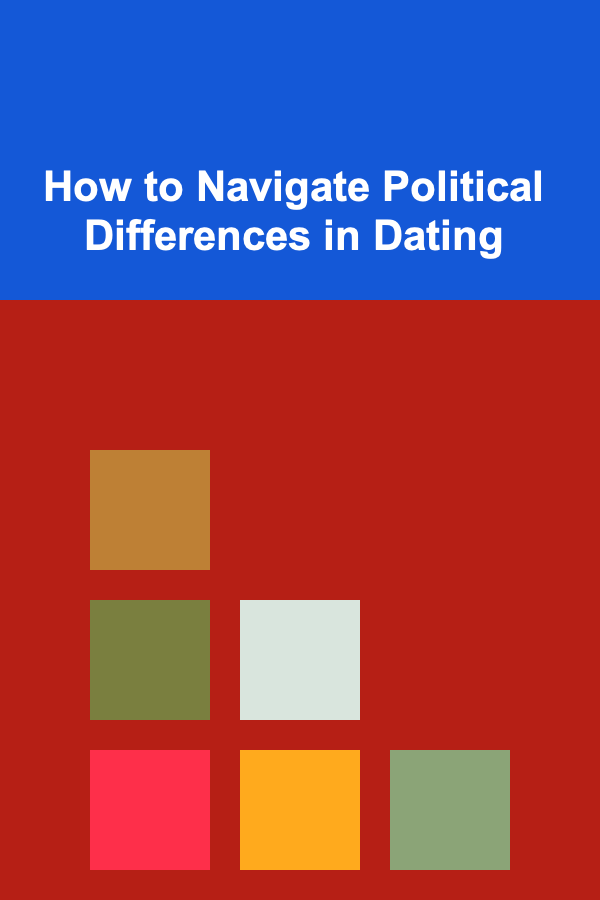
How To Understand the Role of Government in Popular Conspiracy Theories
ebook include PDF & Audio bundle (Micro Guide)
$12.99$9.99
Limited Time Offer! Order within the next:

Conspiracy theories have existed for as long as humans have gathered into societies and sought to explain the events and mysteries that govern their lives. From claims of shadowy organizations manipulating global events to the supposed cover-ups of extraterrestrial life, conspiracy theories provide an alternative narrative to the official version of events. The role of government in these theories is complex, multifaceted, and often contentious. Governments are both the subject of conspiracy theories and the very entity that shapes the discourse surrounding them. This article explores the intersection of government and conspiracy theories, aiming to shed light on how and why governments feature so prominently in such narratives.
The Nature of Conspiracy Theories
At its core, a conspiracy theory suggests that events or situations are the result of a secret, usually sinister, plot by a group of individuals or organizations. These theories often involve elements of distrust in official institutions and a belief that public figures, organizations, or governments are manipulating information to control the public.
What makes conspiracy theories particularly compelling to many people is their narrative structure: they often explain complex or inexplicable events in ways that feel coherent and complete, offering a sense of certainty in an otherwise uncertain world. However, this simplicity and certainty are precisely what make them problematic, as they can bypass critical thinking and promote a more paranoid and polarized worldview.
Governments, by virtue of their control over societal structures and power, often become the focal point of these theories. They are the institutions most likely to have both the means and motivation to influence or manipulate events. For this reason, governments are commonly portrayed as either the masterminds behind grand conspiracies or the perpetrators of nefarious activities that require secrecy and deception.
The Government as a Source of Conspiracy Theories
Governments have been at the center of many of the most famous conspiracy theories throughout history. From the assassination of President John F. Kennedy to the moon landing hoax, governments have been accused of orchestrating or covering up significant historical events. But why do these theories so often target governments?
Power, Secrecy, and Control
Governments wield immense power, and power, in the eyes of conspiracy theorists, often leads to corruption. The larger and more powerful an institution is, the more susceptible it is to being viewed as having secret motives. Governments often engage in actions that are hidden from the public eye, whether through intelligence agencies, covert operations, or classified projects. The existence of secretive government actions can lend credence to the idea that more conspiracies are taking place behind the scenes.
Take, for example, the famous Watergate scandal, which involved the Nixon administration's efforts to cover up its involvement in the break-in at the Democratic National Committee headquarters. This scandal served as a wake-up call to the American public, highlighting the lengths to which government officials might go to hide the truth. Such events lead people to believe that if the government could hide something so significant, it could be hiding much more.
Misunderstanding and Distrust
Governments often deal with issues that are difficult for the average citizen to fully comprehend, such as military operations, intelligence gathering, or economic policy. When these complex topics are not communicated effectively, or when they are wrapped in layers of secrecy, they become fertile ground for speculation. For instance, the secretive nature of the Manhattan Project, which developed the atomic bomb, fueled rumors that the U.S. government was involved in secret, unethical experiments. Similarly, the lack of transparency in areas like military spending and intelligence operations can lead people to assume that something nefarious is happening behind closed doors.
This misunderstanding is compounded by distrust in authority figures. Over the years, public faith in government institutions has fluctuated, often dipping in response to political scandals, corruption, or perceived failures. This erosion of trust allows conspiracy theories to take hold. When individuals do not believe the government is acting in their best interest or when they feel excluded from important decisions, they may be more likely to embrace alternative explanations of events---ones that cast the government as the antagonist.
How Governments Respond to Conspiracy Theories
Governments often have a complicated relationship with conspiracy theories. On the one hand, conspiracy theories can be a source of frustration for officials who view them as baseless or damaging to the public's understanding of critical issues. On the other hand, governments are rarely in a position to openly acknowledge or address all conspiracy theories, especially those that touch on national security or other sensitive areas.
Public Denial and Counter-Narratives
In many cases, governments respond to conspiracy theories by denying their validity and offering counter-narratives. For example, after the 9/11 attacks, numerous conspiracy theories arose suggesting that the U.S. government had orchestrated the attack to justify wars in the Middle East or to implement domestic surveillance programs. The government's response was to strongly deny these claims, presenting official investigations like the 9/11 Commission Report to dispel the conspiracy theories.
Governments also often employ public relations campaigns to reaffirm their legitimacy and counter misinformation. This might include releasing declassified documents, holding press conferences, or using social media to engage with the public. By doing so, they attempt to prevent the spread of conspiratorial thinking and ensure that the official narrative is the dominant one.
However, such official counter-narratives are not always sufficient to quell conspiracy theories. Many conspiracy theorists view government responses as part of the cover-up, reinforcing their belief that the government is hiding the truth. This can create a feedback loop, where the more the government denies a conspiracy, the more convinced adherents of the theory become that they are being misled.
Covert Actions and Real Government Secrecy
It is important to note that some conspiracy theories have been rooted in real government actions that were, for a time, kept secret from the public. For instance, the U.S. government's MKUltra program involved the covert testing of mind-control drugs on unwitting citizens during the 1950s and 1960s. When the program was exposed, it served as a reminder that real conspiracies can and do happen within governments. This reality complicates the relationship between the public and the state, making it harder to dismiss all conspiracy theories as unfounded or purely paranoid.
The Challenge of Handling Misinformation
In the age of social media and widespread misinformation, governments have found it increasingly difficult to manage conspiracy theories. While some conspiracy theories remain marginal, others---especially those that involve powerful, influential actors---can gain significant traction. For instance, the rise of QAnon, a far-right conspiracy theory that claims a secret cabal of elites is controlling global events, has posed significant challenges to the U.S. government. The government's inability to definitively debunk such a pervasive theory has contributed to the growing divide between certain segments of the population and traditional political institutions.
Governments have attempted to combat misinformation through various measures, including regulation of social media platforms, public education campaigns, and fact-checking initiatives. However, these efforts are often met with resistance, as many conspiracy theorists see these actions as part of a broader effort to suppress the truth.
Psychological Factors in Conspiracy Thinking
While governments certainly play a significant role in the development and spread of conspiracy theories, it is also important to understand the psychological factors that drive individuals to believe in these theories in the first place. Conspiracy theories often arise from the need to make sense of a chaotic or threatening world. The belief that there is a hidden, malicious force controlling events can provide a sense of clarity and control in uncertain times.
For many people, conspiracy theories serve as a coping mechanism for feelings of powerlessness. The world can seem overwhelming and unpredictable, and conspiracy theories offer simple explanations that provide a sense of agency. This is particularly true in times of social, political, or economic crisis when people are searching for someone or something to blame for their difficulties.
Moreover, individuals who are predisposed to conspiracy thinking tend to distrust authority and exhibit higher levels of paranoia. Such individuals may interpret ambiguous events or unclear information as evidence of a hidden plot. In this context, government secrecy, especially when combined with a lack of transparency, can serve as a trigger for the development of conspiracy theories.
The Role of Media in Government Conspiracy Theories
The media plays a critical role in both amplifying and challenging conspiracy theories. With the advent of the internet, information---both true and false---spreads rapidly, and media outlets, both mainstream and alternative, are key players in shaping the public's perception of government activities.
Social media platforms, in particular, have made it easier for conspiracy theories to gain traction. The ability to share and amplify content across a global network means that once a conspiracy theory catches on, it can spread quickly and gather a substantial following. While social media platforms have made efforts to combat false information, conspiracy theorists have found ways to work around these restrictions, often reinforcing each other's beliefs in isolated echo chambers.
Mainstream media outlets also have a role in how government conspiracies are portrayed. Sensationalist coverage, especially when it involves high-profile figures or controversial topics, can inadvertently fuel conspiracy theories. The more a story is covered, the more likely it is to be scrutinized and dissected by conspiracy theorists, who will look for inconsistencies or hidden motives.
Conclusion
The role of government in popular conspiracy theories is intricate and multifaceted. Governments are both the subject and the object of conspiracy theories, as their power, secrecy, and actions naturally attract suspicion. While some conspiracy theories are rooted in real events or actions, the majority are based on misinterpretations, distrust, and psychological factors that seek to explain an often confusing world.
Governments' responses to these theories can further complicate the situation, as attempts to discredit conspiratorial thinking can sometimes backfire, reinforcing the belief that a cover-up is taking place. Moreover, the spread of misinformation and the rise of social media platforms have made it increasingly difficult for governments to combat conspiracy theories effectively.
Ultimately, understanding the role of government in conspiracy theories requires a careful analysis of both the historical context of these theories and the psychological factors that drive belief in them. It also requires an appreciation of the ways in which media, government actions, and public sentiment interact to create a complex web of narratives that continue to shape the public's perception of reality.

How to Build Custom Shelving Units for Your Home Office
Read More
Optimizing Patient Flow and Efficiency in Hospitals: An Actionable Guide
Read More
How to Poach Chicken for Salads
Read More
How to Navigate Political Differences in Dating
Read More
How to Evaluate a Film's Audience Engagement
Read More
How to Build Core Strength with Pilates for Runners
Read MoreOther Products

How to Build Custom Shelving Units for Your Home Office
Read More
Optimizing Patient Flow and Efficiency in Hospitals: An Actionable Guide
Read More
How to Poach Chicken for Salads
Read More
How to Navigate Political Differences in Dating
Read More
How to Evaluate a Film's Audience Engagement
Read More